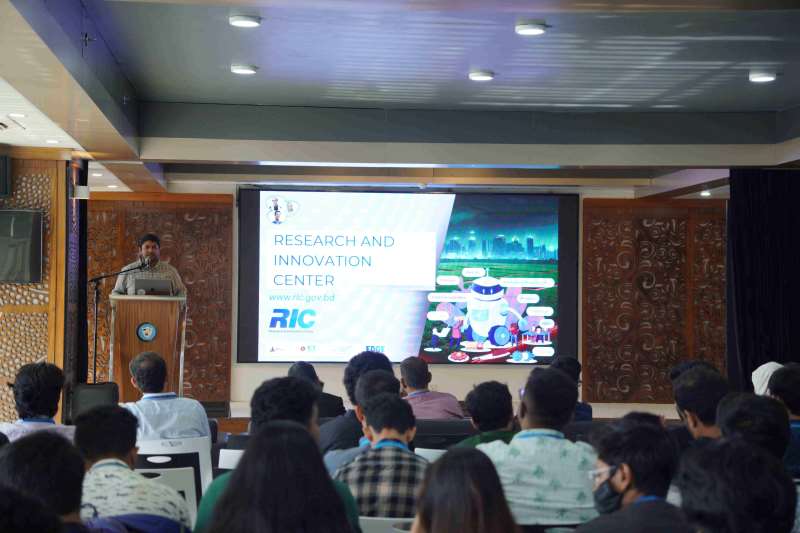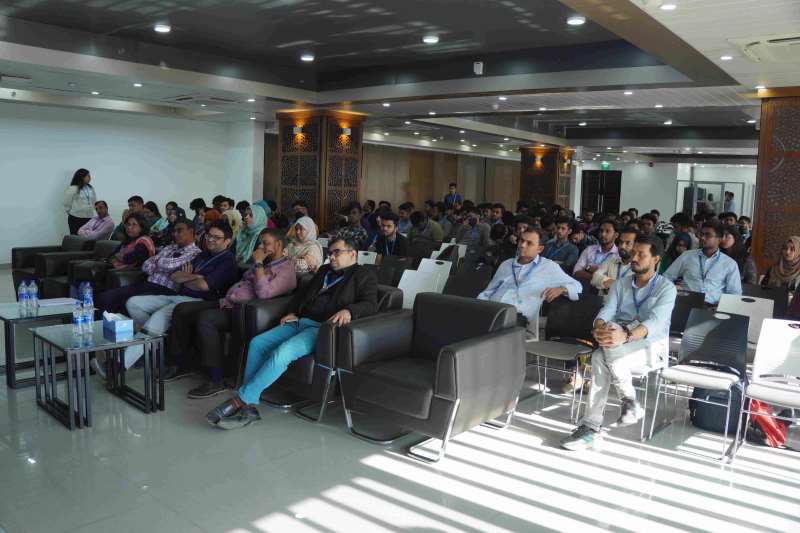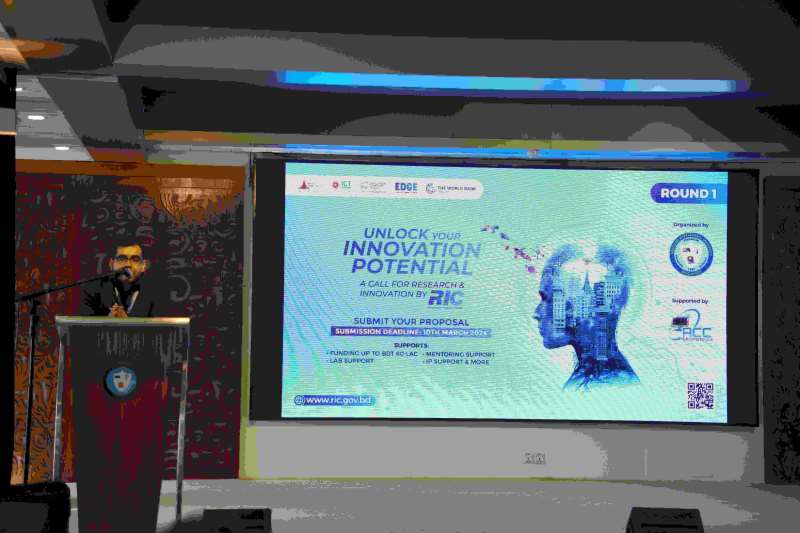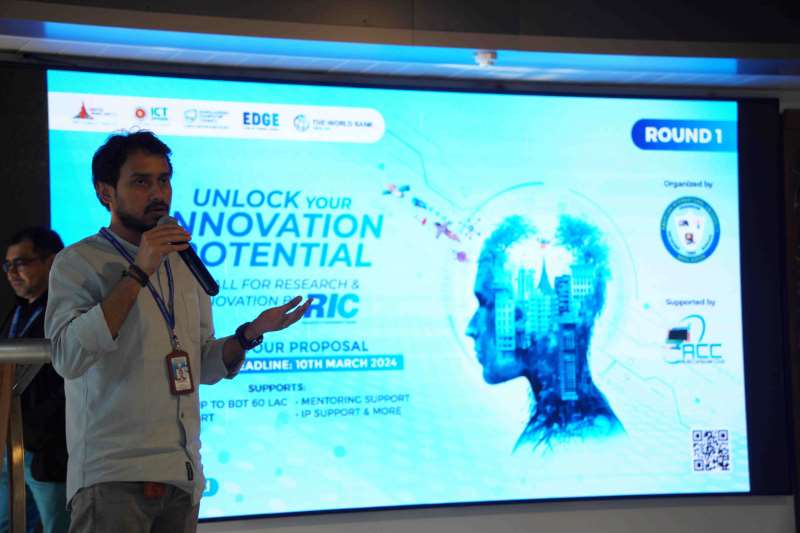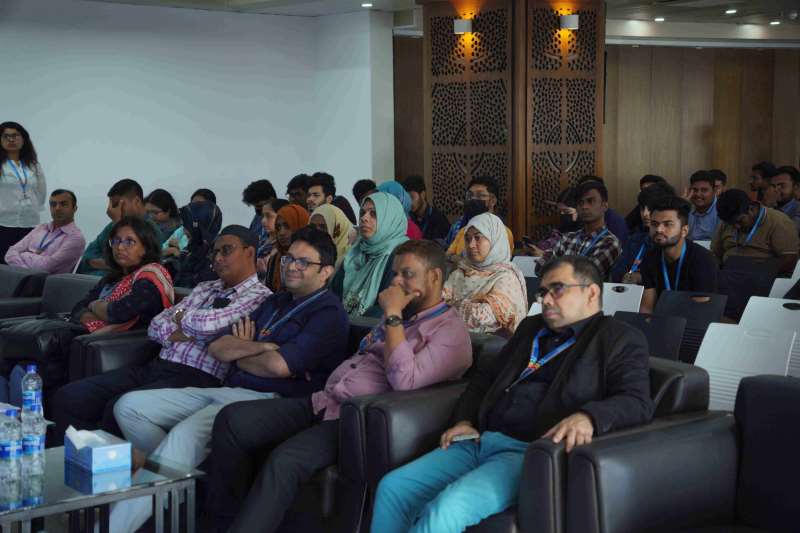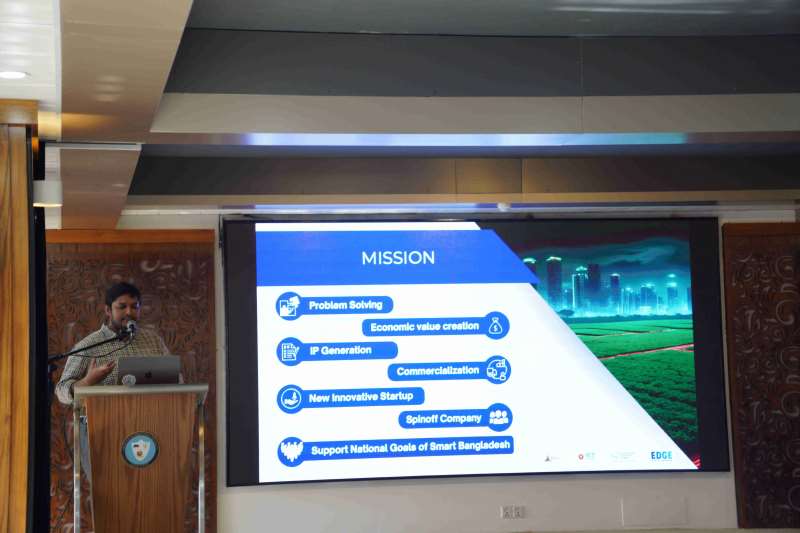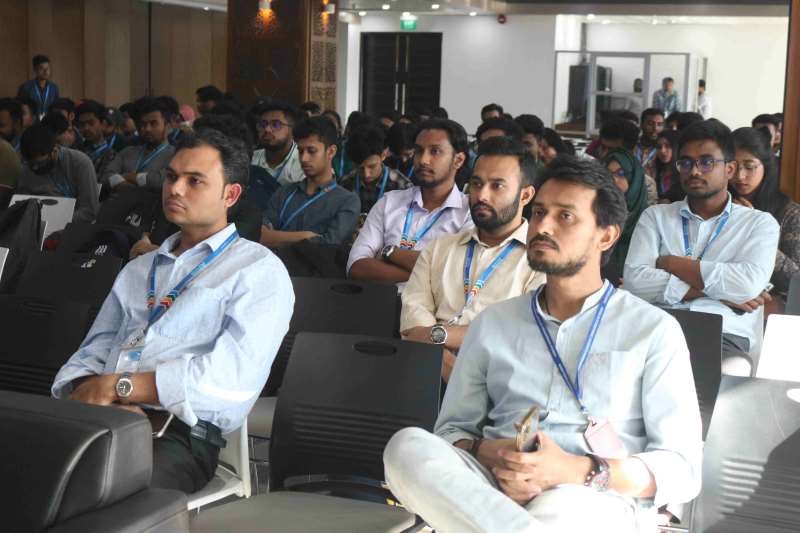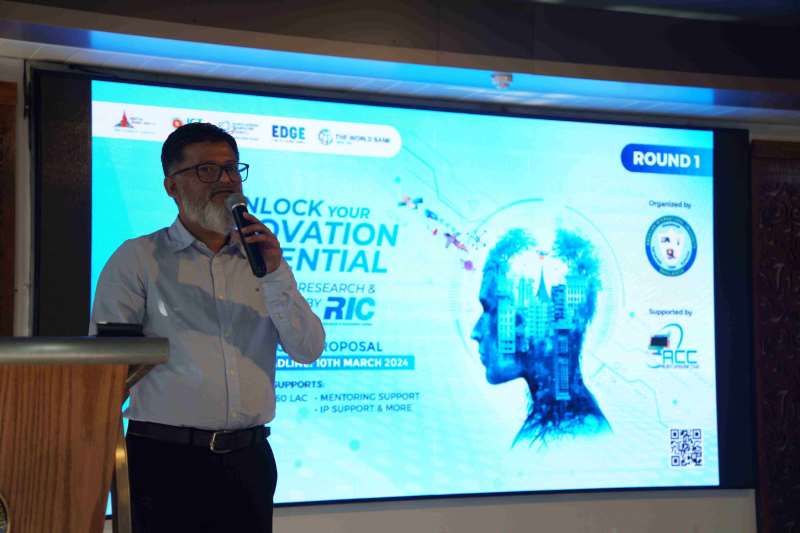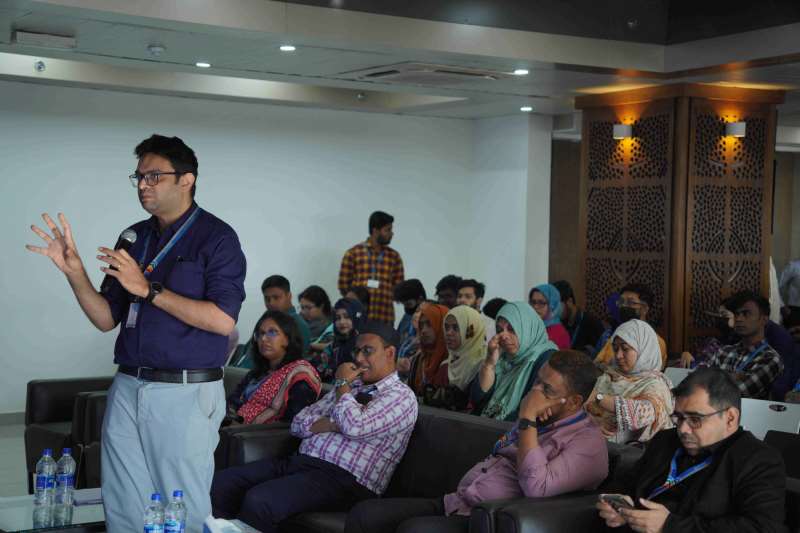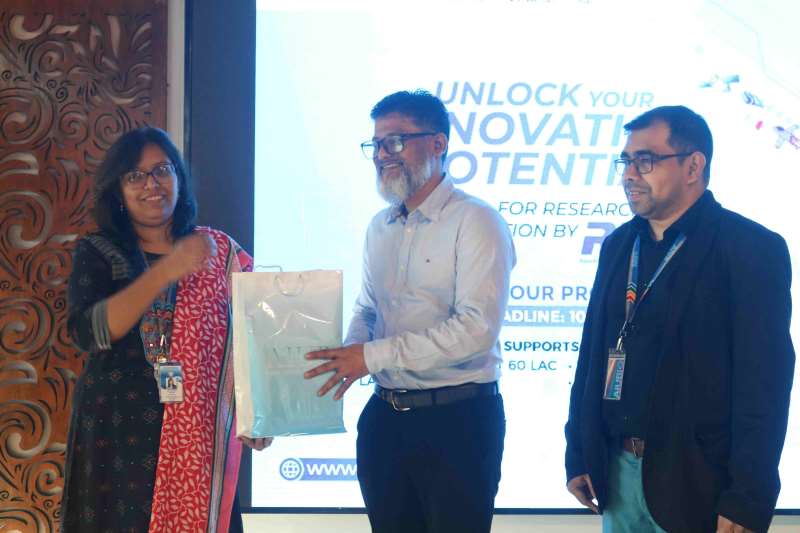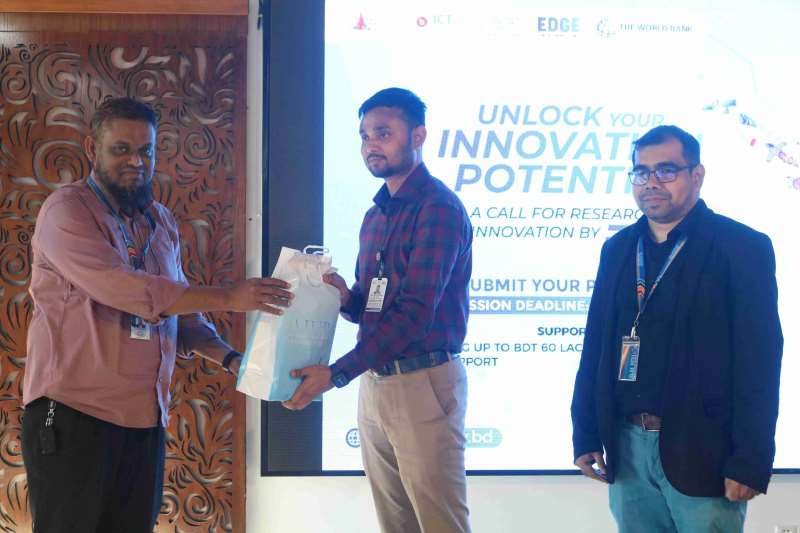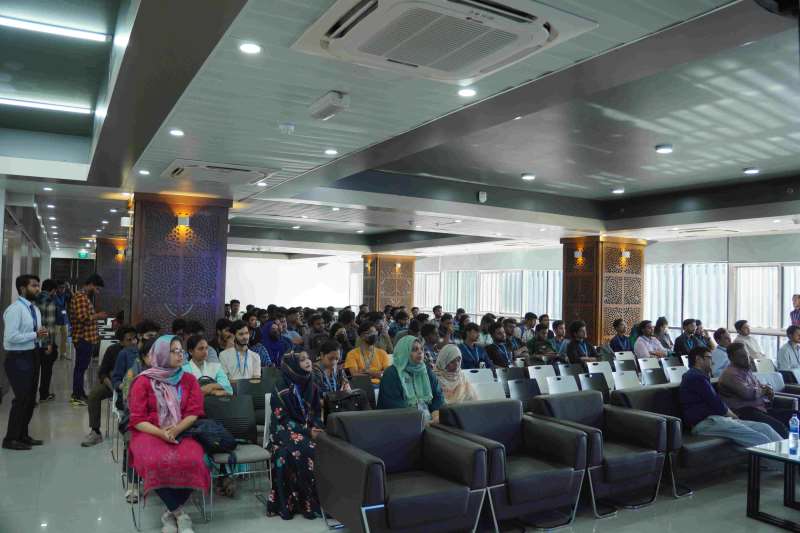On Wednesday, March 6, 2024, the ICT Ministry organized a seminar on “Unlock Your Innovation Potential: A call for Research & Innovation By RIC” in collaboration with AIUB Computer Club. The seminar took place in Multipurpose Hall, D Building, AIUB at 3:00 PM . The primary objectives of the seminar were to learn from influential individuals about the ICT Ministry's EDGE Project and to explore how innovation and research can be integrated into Bangladeshi education through a Q&A session. Mr. Rusafi Alam (Project Manager, Digital Economy Strategy, EDGE Project) was the seminar's honorable speaker.
Ms. Souriya Akter (General member of AIUB Computer Club) hosted the seminar and greeted all attendees. The project's ability to provide funding up to BDT 60 lac, lab support, mentorship support, IP support, and other resources was also highlighted. The host then invited Dr. Md. Abdullah Al-Jubair (Assistant Professor and Director of Computer Science, AIUB) to take the stage and give a speech. In his speech, he emphasized the value of research and urged all in attendance to submit research proposals. The host then gave a warm welcome to Mr. Rusafi Alam on stage. He began by asking the audience how many of them were interested in research during an interactive session. The Research and Innovation Centre is referred to as RIC. Mr. Rusafi described how these are set up in universities as part of the EDGE project to carry out practical exercises and experimentation to foster students' digital skills. Additionally, it develops emerging technology strategies and plans for research and innovation (R&I) and carries out several research and innovation initiatives to strengthen capacities for R&I with the goal of resolving real-world issues for the public, government, and industry. He also discussed Bangladesh's state of research and development. Despite having comparable economic and social indicators to India and Pakistan. Researchers from Pakistan and India published 28,612 and 199,261 documents in 2020, respectively—much more than Bangladesh did. In contrast, in 2020 Bangladeshi researchers published about 8,000 scholarly articles with an impact factor in international journals; of these, only one patent was obtained.
The next topic of discussion was the three primary RIC components. With the goal of conducting research and innovation projects, these RICs hope to promote cooperation between government, academia, and industry stakeholders. The missions of RIC—problem solving, economic value creation, IP generation, commercialization, new innovative startup, spinoff company, and support for the national goals of Smart Bangladesh—were also mentioned by Mr. Rusafi. Then he demonstrated the first round of the project's process, which includes the announcement of the call for papers in February 2024, the evolution process in March 2024, research, innovation, mentoring, and monitoring, as well as the award ceremony and fund release. The speaker went on to discuss how RIC, with its key components of Knowledge Creation, Frontier Technologies, $12,500 per capita Income, Developed Country by 2041, and Innovation Economy, is ideally positioned to support smart Bangladesh. Furthermore, he demonstrated the project's focus areas for problem solving, which include water, the environment, cyber-security, culture, food, health etc. At the end of the presentation Mr. Rusafi encouraged every attendee to be innovative and smart with Smart Bangladesh. Next, Mr. Syed Nazmul Karim (Project Manager, Digital Economy Business Development, EDGE Project) took the stage to discuss putting in proposals for research and developing prototypes. Throughout the Q&A session, numerous inquiries from the audience surfaced, including how many research proposals can be applied for and the procedure for submitting proposals, among other things. The presenters outlined the submission procedure, which entails submitting a PowerPoint online, presenting the research proposal in front of the jury, and having the jury select the best proposal. They added that working with a commercial company is possible if the budget is large.
In closing, Mr. Abhijit Bhowmik (Associate Professor of Computer Science and Special Assistant to the Office of Student Affairs, AIUB) addressed the audience and urged all present to submit one or two research proposals. Finally, on behalf of AIUB, a token of appreciation was presented to the guest speakers. At 4:00 p.m., the seminar concluded with a lively audience.
